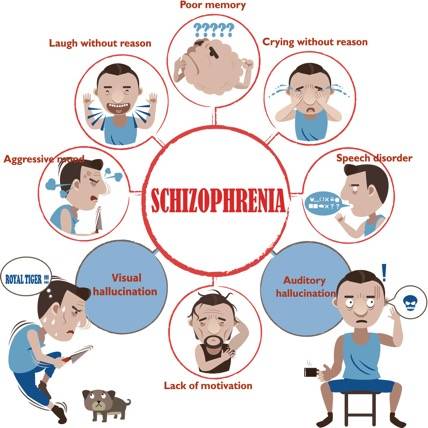Future Directions In Schizophrenia Research And Treatment
Schizophrenia, a complex and chronic mental disorder, poses significant challenges for individuals affected and the healthcare professionals dedicated to their care. Ongoing research and advancements in understanding the neurobiology of schizophrenia have paved the way for innovative treatments. This article explores the future directions in schizophrenia research and treatment, highlighting promising avenues that may redefine the landscape of care for individuals with schizophrenia.
Advancements in Neurobiology and Genetics
Precision Medicine:
Future research in schizophrenia is likely to shift towards precision medicine, tailoring treatments based on an individual’s genetic makeup, neurobiological profile, and specific symptoms. This approach aims to enhance treatment efficacy by addressing the unique characteristics of each person’s illness.
Neuroinflammation and Immune System Modulation:
Emerging evidence suggests a link between neuroinflammation and schizophrenia. Future research may delve deeper into understanding the role of the immune system in the development and progression of schizophrenia. Targeting neuroinflammatory pathways could lead to novel treatment strategies.
Innovative Treatment Approaches
Neurostimulation Techniques:
Non-invasive brain stimulation techniques, such as transcranial magnetic stimulation (TMS) and transcranial direct current stimulation (tDCS), show promise in alleviating symptoms of schizophrenia. Future developments may refine these techniques and explore their potential as adjuncts to traditional pharmacotherapy.
Cognitive Remediation:
Cognitive deficits are a hallmark of schizophrenia, significantly impacting daily functioning. Future treatments may focus on cognitive remediation programs designed to enhance cognitive abilities, improve social skills, and foster functional recovery in individuals with schizophrenia.
Psychedelic-Assisted Therapy:
Psychedelic compounds, particularly psilocybin, have shown promise in treating various mental health disorders. Future research may investigate the potential of psychedelic-assisted therapy in managing symptoms of schizophrenia, with a focus on altering perception and fostering psychological insights.
Digital Therapeutics:
The integration of digital health tools and therapeutics is likely to play a substantial role in schizophrenia treatment. Mobile applications, virtual reality, and other technologies may be employed for symptom monitoring, psychoeducation, and even as adjuncts to traditional therapeutic approaches.
Addressing Treatment Resistance
Clozapine Optimization:
Clozapine remains one of the most effective medications for treatment-resistant schizophrenia. Future research may aim to optimize the use of clozapine, minimize its side effects, and explore its potential in earlier stages of the illness.
Glutamate Modulation:
The glutamate system, particularly the N-methyl-D-aspartate (NMDA) receptor, has gained attention in schizophrenia research. Future medications may target the glutamate system to address treatment-resistant symptoms, providing an alternative or adjunct to current antipsychotic medications.
Holistic Approaches and Psychosocial Interventions
Integrated Care Models:
Future directions in schizophrenia treatment may emphasize integrated care models that incorporate medical, psychological, and social interventions. Collaborative care involving psychiatrists, psychologists, social workers, and other healthcare professionals can provide comprehensive support for individuals with schizophrenia.
Community-Based Interventions:
Holistic interventions that extend beyond clinical settings and into communities may become more prominent. Supportive housing, vocational training, and community engagement programs can contribute to the overall well-being and recovery of individuals with schizophrenia.
Conclusion
The future of schizophrenia research and treatment holds immense promise, driven by advancements in neurobiology, genetics, and innovative therapeutic approaches. As the field evolves, a personalized and holistic approach to care is likely to take center stage, emphasizing precision medicine, neurostimulation techniques, and novel psychosocial interventions. By continuing to explore diverse avenues, researchers and clinicians aspire to enhance the quality of life for individuals affected by schizophrenia and move towards a more nuanced and effective treatment paradigm.







